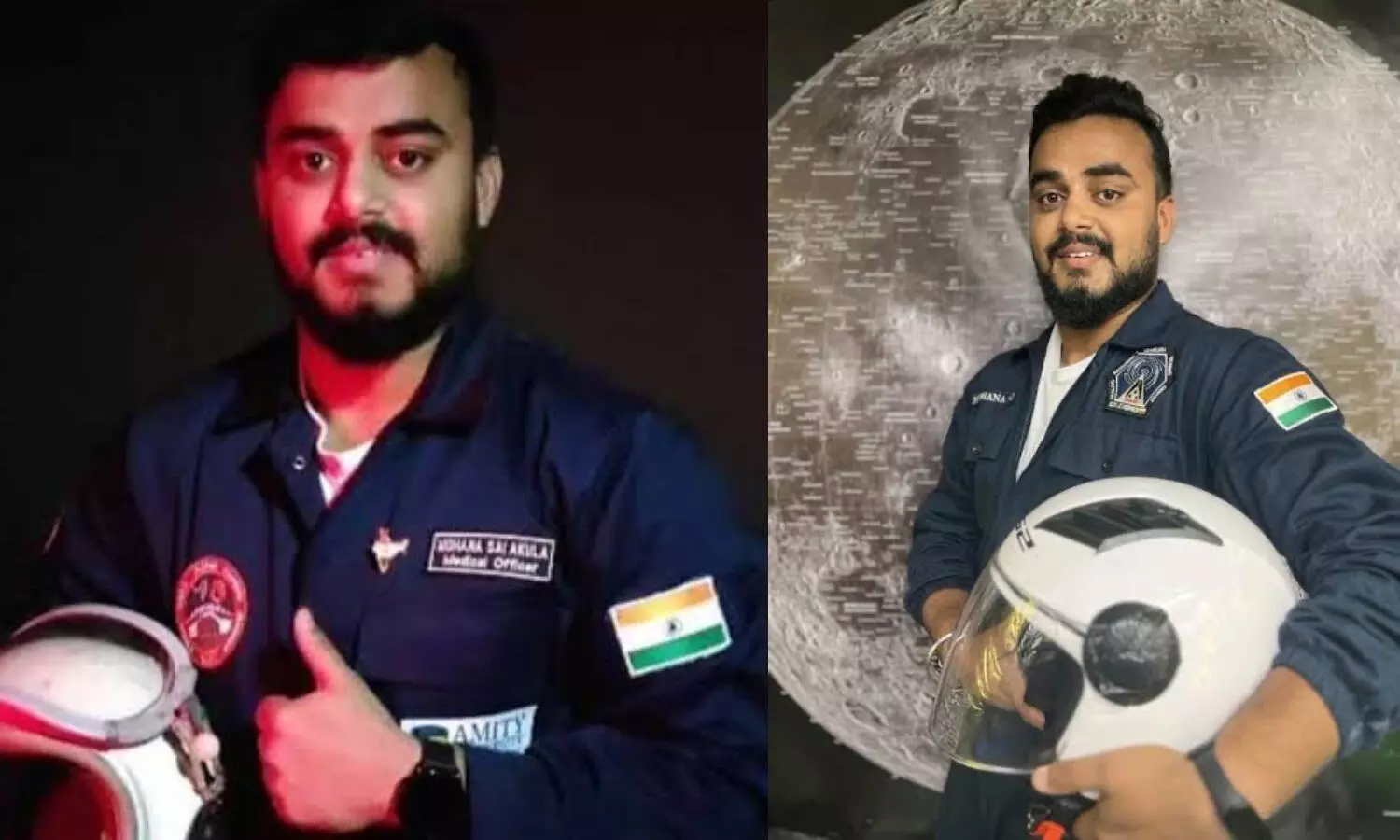Telangana's Akula Mohan Sai selected for 2029 Titans Space Mission
Sai will represent the Telugu-speaking states in this global initiative, according to Titans Space Industries
By Newsmeter Network
Telangana's Akula Mohan Sai selected for 2029 Titans Space Mission
Hyderabad: Akula Mohan Sai, a native of Huzurnagar in Suryapet district, has been selected for the 2029 Titans Space Mission. He will be one of the Astronaut Candidates (ASCAN) for the mission.
Sai will represent the Telugu-speaking states in this global initiative, according to Titans Space Industries (TSI..
Part of India’s First Astrobiology Cohort
Sai belongs to the first group of Indian graduates in Astrobiology and Space Science. He currently works as a research scientist at the Centre for Advanced Research in Space Psychology, funded by the ICMR and located at the Institute of Aerospace Medicine in Bengaluru.
His academic and research focus has been on the Seed-to-Seed cycle of plants in lunar soil simulants, contributing to the advancement of lunar botany and the possibilities of future space farming.
Titans Space Industries Projects
Founded by Neal (NSL) Lachman, TSI is developing multiple space exploration programmes. These include:
• The Genesis Spaceplane, a reusable Single-Stage-to-Orbit vehicle.
• The Titans Orbital Port Space Station (TOPPS).
• The Selene cis-lunar missions.
• The Titania Lunar Base.
According to TSI, Genesis is scheduled for its maiden Earth-Loop orbital cruise in 2029, which will be followed by regular orbital and lunar expeditions.
Training and Analogue Missions
Sai has been part of several international and national analogue astronaut missions. His training experiences include:
• Poland and Arizona (USA).
• Ladakh and Rajasthan in India.
Through these missions, he represented India on global platforms dealing with astronautics, analogue expeditions, and human spaceflight research.
Contribution to GYANEX-1
In July 2025, Sai served as Gagan-3 in India’s first indigenous analogue astronaut mission, the Gaganyaan Analogue Experiment (GYANEX-1). He worked alongside an Indian Astronaut Designate and a Navy Fighter Pilot.
The mission contributed to validating India’s first astronaut selection procedures and psychology protocols, a step that the press release noted as critical for the future of human space exploration in the country.